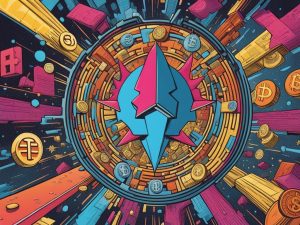Infrastructure Evolution Driven by Technology 🌐
This year, industries reliant on infrastructure are witnessing significant innovations aimed at embracing digital progress. The integration of advanced technologies such as artificial intelligence (AI), blockchain, and the Internet of Things (IoT) is transforming sectors that have remained static for decades.
Shifting Towards Decentralization 🔄
Many infrastructure-focused sectors are transitioning to decentralized frameworks. This shift is paving the way for what is termed decentralized physical infrastructure (DePIN). A pivotal component of this transformation includes real-time, accurate mapping capabilities, crucial for emerging domains like autonomous vehicles and logistics that depend on precise geospatial data. For example, Hivemapper is leading the charge with an innovative mapping approach that leverages user-generated contributions.
The Hivemapper network currently boasts an impressive coverage of 10 million miles. According to insights from its founder, Seidman, this remarkable feat was achieved at a rate five times faster than Google’s Street View, which took a decade to map its first 10 million miles. Seidman emphasized that Hivemapper now captures unique data for over 26% of global roads, with strong coverage across regions like North America, Europe, South Korea, and Japan.
Incentives for Contributors ✨
Hivemapper incentivizes participants in its mapping network by rewarding them with a digital currency called “HONEY.” This token can be exchanged for map data, thereby ensuring that contributors share in the economic benefits generated by the mapping ecosystem. This decentralized model is crafted to foster fairness and openness, which is essential for community engagement.
Furthermore, the Hivemapper Foundation plays a critical role in maintaining the network’s decentralized nature. It aims to support an open-source environment by providing access to source code and resources necessary for hardware and software projects.
Challenges Facing DePIN Implementation ⚠️
Despite the promising aspects of DePIN, several hurdles could impede its widespread acceptance across various industries. Regulatory compliance remains a key issue, as outlined in Moody’s Ratings report. Compliance regulations for infrastructure sectors vary significantly by jurisdiction, impacting operational practices like spectrum use, infrastructure rollout, and data privacy. Companies would need to navigate these complex regulations while striving to maintain operational agility.
Further complicating matters is the skepticism surrounding DePIN from established infrastructure entities. Josh Benaron, the CEO of the data chain Irys, pointed out that traditional companies often view the decentralized model with caution due to its unfamiliar structure. Additionally, there is no clear framework for integrating DePIN with current infrastructures, which poses an obstacle for adoption.
To address these barriers, Benaron underscores the necessity for advancements in interoperability and tools that enhance transparency and efficiency across various user profiles. Moreover, scalability and sustainability are significant concerns as well. Establishing and managing decentralized physical infrastructure, especially in remote regions, will demand substantial financial backing and expertise.
Prospects for Future Advancements 🔮
Looking ahead, Benaron has expressed optimism about the trajectory of DePIN models. He notes that ongoing advancements in blockchain technology are set to introduce more effective and scalable projects aimed at real-world problem-solving while potentially attracting additional stakeholder investment.
This year, the need for decentralized data solutions is taking center stage, driven by heightened public interest in data privacy and security. Consequently, DePIN applications are expected to diversify, impacting significant industries such as transportation, telecommunications, and artificial intelligence.
Hot Take: The Future of Infrastructure is Decentralized 🚀
The trajectory of infrastructure-heavy industries is clearly tilting towards decentralization. As new technologies reshape traditional models, the adoption of decentralized frameworks could redefine how these sectors operate on a global scale. The enduring quest for efficiency, data security, and adaptability will likely underscore the evolution of infrastructure, propelling it into a future where decentralized systems are not just innovative but essential.





 By
By

 By
By
 By
By
 By
By
 By
By